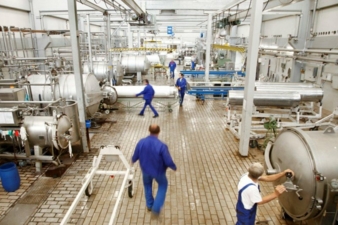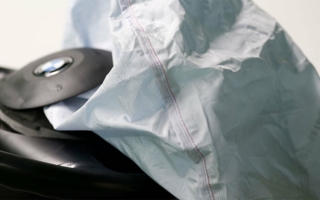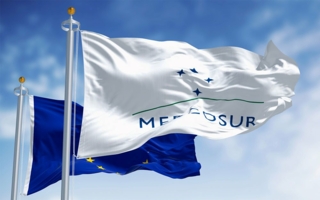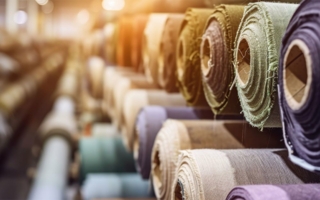14/10/2019 – Report: Navigating a crisis — auf Deutsch lesen
Blanke textech sees change as a strategy
Andreas Blanke has been working for Blanke textech at the Bad Salzuflen location for more than 25 years.
Blanke textech GmbH has been an integral part of west Germany’s textile industry for the past 50 years. In the 1950s, an innovative business model turned adversity into opportunity, leading to the company’s rapid rise during West Germany’s economic miracle (Wirtschaftswunder)and ultimately to the success of Bad Salzuflen. The idea: to re-dye coats previously worn by the Wehrmacht. This represented the firm’s first step to becoming one of the country’s biggest finishers of knitted goods.
In the 1980s, Blanke started widening its focus to technical textiles.
In hindsight, this proved to be a stroke of good fortune and a wise decision! Without this specialisation, Blanke would most probably have been wiped off the landscape by the unforgiving process of market consolidation which started in the 1980s. Back in the 80s, Triumph and other lingerie firms were among Blanke’s key customers, filling the site in North-Rhine Westphalia with several million tonnes and euros worth of goods for dyeing and finishing every year.
Off to Asia!?
However, in the early 90s the WTO liberalised the quotas for the global textile trade, prompting the major brands, trading houses and buyers to move eastwards, and triggering a rapid and fundamental change in order volumes. Very much like today’s automotive industry, Triumph expected their suppliers to move with them to Asia which offered considerably cheaper production conditions. At the end of the 90s, this would have seemed like a logical step forward. Logical yet hugely difficult for a German SME. And all the more difficult in a country like the People’s Republic of China. After all, China was already a leading global force in textiles production and, helped by state investment in new technology and partially subsidised corporate structures, was striving to become the world’s biggest producer of textiles of all kinds.
Investing in China proved disastrous for Blanke and, following the economic crisis of 2008, the company was plunged into administration in 2009. Fortunately, the strategic decision to branch into technical textiles back in the 1980s enabled the company to be released from administration under new ownership. Hermont AG took over Blanke as majority shareholder in 2011, changing the company name to Blanke textech GmbH. In 2017, Mattes & Ammann GmbH & Co. KG acquired the majority stake, creating a vertically integrated large circular knitting/warp knitting mill with its own dyeing, finishing and print shop and a coating/laminating set-up.
New start in a new constellation
The connection with Mattes & Ammann GmbH & Co. KG has increased the focus on new technologies and customers. Although it is an all too familiar pattern in the global textiles industry, a repeat of the Triumph experience was to be avoided at all costs. It is a fact of life that customers no longer last a lifetime. New and regular customers have to be treated and processed in the same way. Even so, the formula for new customers has fundamentally changed. Especially in the age of digitalisation and the global availability of services and products, it is becoming all the more difficult to identify niches and new customers who require exactly what Blanke has to offer. Experience has shown that it is often the small enquiries that later grow into major business over a period of several years, provided these new contacts feel they have been well looked after from the start.
It is not just the technological development of machines and processes that has helped to secure the future of Blanke textech GmbH. Major changes have also been made to the business model which has moved away from traditional job production towards value-adding partnerships with a full range of services. The company’s early concentration on technical textiles through close collaboration and direct communication with OEMs and its appreciation of specifications and international supply chains as a Tier 4 or 5 supplier have enabled the company to remain in Bad Salzuflen. As it expands into new divisions and customer groups, the corporate structure continues to be nurtured by the current majority stakeholder. This is the best way to ensure that Blanke textech will stand the test of time. Constant change – through any crisis: it’s not easy, but it can be done!
Anton Schumann




